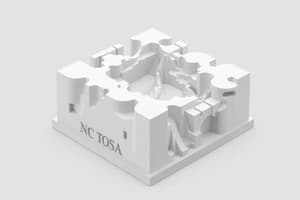Podcast
Questions and Answers
What throw ratio range corresponds to a standard throw projector?
What throw ratio range corresponds to a standard throw projector?
- 2.56 to 10.11
- 0.16 to 0.38
- 1 to 2.56 (correct)
- 0.4 to 0.8
Which light source typically has the longest lifespan in a projector?
Which light source typically has the longest lifespan in a projector?
- Lamp - Eco mode
- Laser - Normal mode (correct)
- Lamp - Normal mode
- Laser - Eco mode
Which projector type typically offers the highest brightness?
Which projector type typically offers the highest brightness?
- Laser (correct)
- 3LCD
- DLP
- Lamp
What is the native resolution option that corresponds to 4K?
What is the native resolution option that corresponds to 4K?
What is the effective throw ratio range for an ultra-short throw projector?
What is the effective throw ratio range for an ultra-short throw projector?
Which connectivity option is NOT typically found in projectors?
Which connectivity option is NOT typically found in projectors?
What is the highest contrast ratio achievable with laser projectors?
What is the highest contrast ratio achievable with laser projectors?
What is the brightness range of lamp projectors?
What is the brightness range of lamp projectors?
Which of the following technologies uses a single chip?
Which of the following technologies uses a single chip?
What projected screen size range does a standard throw projector cover?
What projected screen size range does a standard throw projector cover?
Flashcards are hidden until you start studying
Study Notes
Projector Types
- Ultra-short Throw: Throw ratio between 0.16 to 0.38, designed for very close projection to the screen.
- Short Throw: Throw ratio ranges from 0.4 to 0.8, suitable for smaller rooms.
- Standard Throw: Throw ratio from 1 to 2.56, typically used in larger settings.
- Long Throw: Throw ratio spans 2.56 to 10.11, ideal for projecting over longer distances.
Projection Technologies
- Two main types of projection technologies: 3LCD and DLP (Digital Light Processing).
- 3LCD uses three separate LCD chips for color and image production.
- DLP utilizes a single chip for image processing, often leading to more compact designs.
Projector Basics
- Projection Technology: Predominantly 3LCD for brighter images and better color.
- Light Source: Available in Lamp or Laser options.
- Native Resolution: Varies from XGA (1024x768) to WUXGA (1920x1200) and up to 4K for high-definition images.
- Light Source Life:
- Normal lifespan:
- Lamp: 4,000 to 8,000 hours.
- Laser: 20,000 hours.
- Eco mode lifespan:
- Lamp: 7,000 to 17,000 hours.
- Laser: 30,000 hours.
- Normal lifespan:
- Screen Size:
- Standard throw projectors can accommodate image sizes from 30 inches to 1000 inches.
- Ultra-short throw projectors are typically used for image sizes between 60 inches and 160 inches.
- Brightness Levels:
- Lamp projectors: 2,600 to 5,500 Lumens.
- Laser projectors: 1,000 to 30,000 Lumens.
- Both types offer a white light output and color light output in the same range.
- Contrast Ratio:
- Lamp projectors: Typically between 15,000:1 and 16,000:1.
- Laser projectors: Up to 50,000:1, resulting in more vivid images.
- Connectivity Options: Include VGA, HDMI, USB Type A and B, Wired LAN, optional Wireless (via ELPAP10/ELPAP11), Stereo Mini Jack, RS-232C, and HDBaseT.
Additional Information
- DLP is a registered trademark of Texas Instruments, highlighting its proprietary technology in digital projection.
Studying That Suits You
Use AI to generate personalized quizzes and flashcards to suit your learning preferences.




